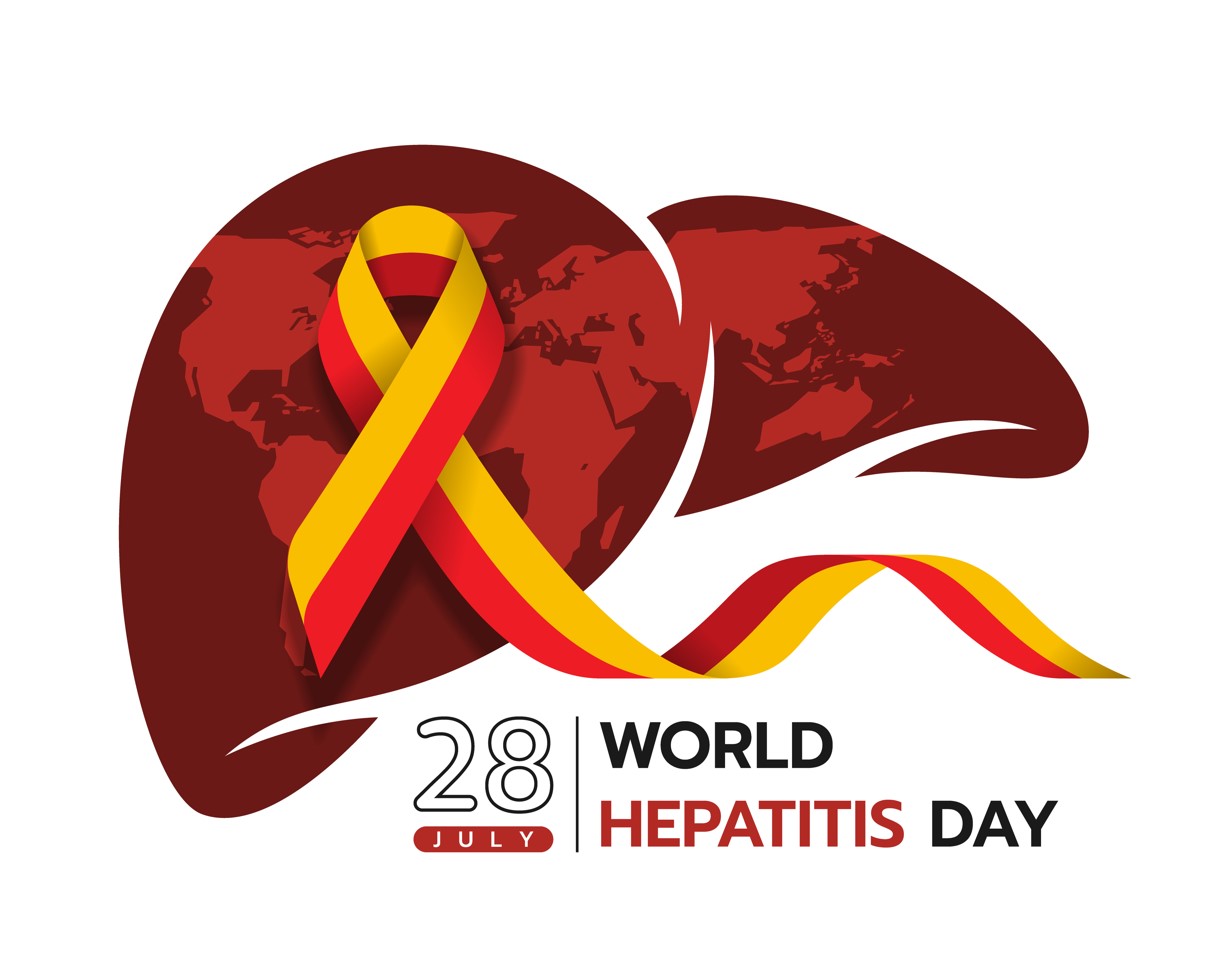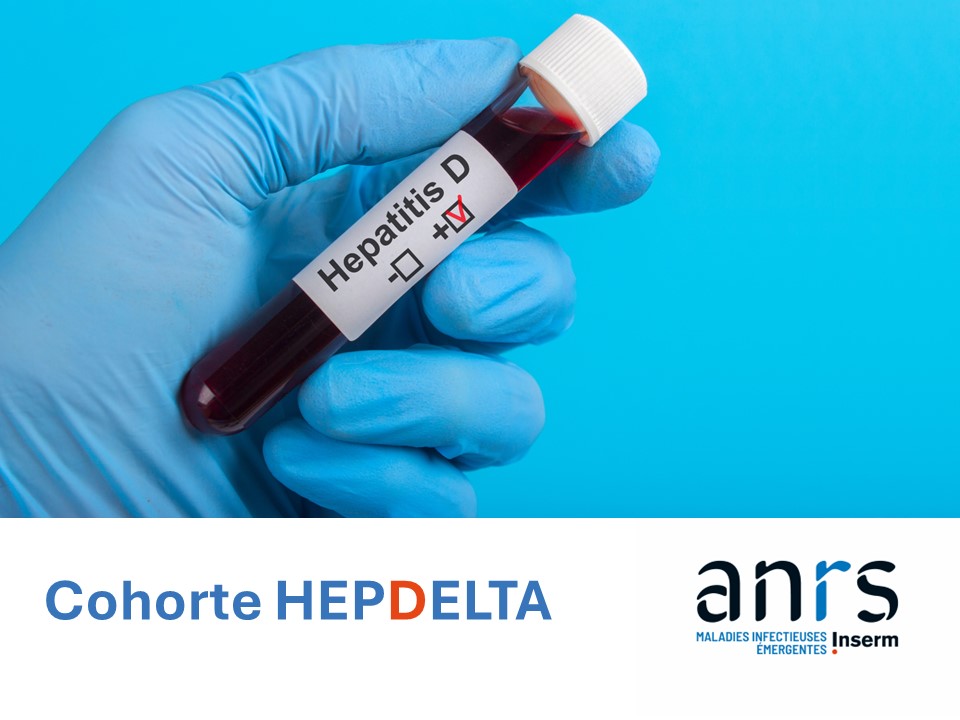
World Hepatitis Day 2024
World Hepatitis Day, celebrated every year on 28 July, aims to raise public awareness of the risks and consequences of viral hepatitis.
Last updated on 30 January 2025
The essential
This year’s theme is: It’s time for action.
With a person dying every 30 seconds from a hepatitis-related illness, we must accelerate action on better prevention, diagnosis, and treatment to save lives and improve health outcomes. Reaching the WHO elimination goal by 2030, should still be achievable although major challenges remain in terms of screening and access to treatment.
Studies supported by the ANRS MIE to advance research
The ANRS Emerging Infectious Diseases is continuing its efforts to advance research into viral hepatitis and provide solutions for the millions of people suffering from the disease.
To mark World Hepatitis Day, we would like to invite you to discover 2 research projects being conducted on the ANRS HEPDELTA cohort, a national cohort monitoring patients co-infected with hepatitis B and Delta viruses, set up in France in 2019, funded and sponsored by ANRS MIE (formerly known as the BuleDelta cohort).
In particular, this cohort will monitor patients treated with bulevirtide and collect clinical, virological and biological data during treatment and after it has been discontinued. Bulevirtide is the first treatment approved in France for hepatitis D virus (HDV), either alone or in combination with peginterferon (peg-IFN).
Treatment with bulevirtide in HIV-infected patients with chronic hepatitis D
This article, published in JHEP Reports, evaluated the efficacy and safety of bulevirtide (BLV) in patients co-infected with HIV and HDV. This treatment has been available in France since September 2019 as part of an early access programme to treat patients with HDV.

The published work demonstrated that :
1/ bulevirtide can be used safely in patients infected with HIV and HDV,
2/ it does not interfere with anti-HIV drugs,
3/ an HDV virological response was found in more than half the patients.
These results suggest that bulevirtide should be considered as a first-line therapy in this specific population, but the optimal duration of treatment remains unknown to date and should be the subject of future research.
Impact of bulevirtide in combination with peg-IFN in patients infected with the hepatitis delta virus
In the second article, also published in JHEP Reports, the team analysed the virological response data of patients treated with bulevirtide alone or in combination with another treatment, peg-IFN, during one year’s follow-up. The work demonstrated for the first time that patients treated with the combination had a better virological response than those treated with bulevirtide alone. The addition of Peg-IFN to bulevirtide was associated with a virological response rate at week 48 of 86.9% compared with 56.1% with bulevirtide alone.
These viral kinetics results are of major clinical importance, as they provide a basis for understanding the results of the MYR204 phase II clinical trial, which showed the superior efficacy of the Bulevirtide 10 mg + Peg-IFN combination, published recently in the NEJM.

Using mathematical models developed by our team, we were also able to demonstrate that this improved response could translate into higher cure rates. Indeed, we have estimated that after two years of treatment, the proportion of patients cured should be 42% with monotherapy and 67% with the combination. These results therefore point to a benefit of the combination, which will have to be formally evaluated by a clinical trial. However, they also highlight the heterogeneous nature of the response to treatment, with some patients being ‘non-responders’ for whom the chances of a cure remain slim.
Scientific publications
de Lédinghen V, Fougerou-Leurent C, Le Pabic E, Pol S, Alfaiate D, Lacombe K, Hilleret MN, Lascoux-Combe C, Minello A, Billaud E, Rosa I, Gervais A, Ratziu V, Ganne N, Pageaux GP, Leroy V, Loustaud-Ratti V, Mathurin P, Chas J, Jezequel C, Métivier S, Dumortier J, Arpurt JP, Asselah T, Roche B, Le Gruyer A, Valantin MA, Scholtès C, Gordien E, Tual C, Kortebi A, Coulibaly F, Rosenthal E, Subic-Levrero M, Roulot D, Zoulim F; ANRS HD EP01 BuleDelta study group. JHEP Rep. 2024 Mar 26;6(8):101057. https://doi.org/10.1016/j.jhepr.2024.101057.
Effect of Peg-IFN on the viral kinetics of patients with HDV infection treated with bulevirtide
Selma El Messaoudi, Ségolène Brichler, Claire Fougerou-Leurent, Emmanuel Gordien, Athenaïs Gerber, Amal Kortebi, Garance Lagadic, Miroslava Subic-Levrero, Sophie Metivier, Stanislas Pol, Anne Minello, Vlad Ratziu, Vincent Leroy, Philippe Mathurin, Laurent Alric, Fatoumata Coulibaly, Jean-Michel Pawlotsky, Fabien Zoulim, Victor de Lédinghen, Jérémie Guedj. JHEP Rep. 2024 March 22;6(8):101070. DOI:https://doi.org/10.1016/j.jhepr.2024.101070
Bulevirtide Combined with Pegylated Interferon for Chronic Hepatitis D.
Asselah T, Chulanov V, Lampertico P, Wedemeyer H, Streinu-Cercel A, Pântea V, Lazar S, Placinta G, Gherlan GS, Bogomolov P, Stepanova T, Morozov V, Syutkin V, Sagalova O, Manuilov D, Mercier RC, Ye L, Da BL, Chee G, Lau AH, Osinusi A, Bourliere M, Ratziu V, Pol S, Hilleret MN, Zoulim F. N Engl J Med. 2024 Jul 11;391(2):133-143. doi: 10.1056/NEJMoa2314134.
Scientific activities dedicated to hepatitis
The ANRS MIE brings together researchers and experts in various groups: Coordinated actions, working groups and sub-groups, networks, task forces, etc.
Among the groups of experts involved in hepatitis research, the HBV Cure Task Force promotes ambitious and innovative research on the HBV Cure theme in France and internationally. A group of experts grouped under the ‘Coordinated action Basic and translational research on viral hepatitis’ is working on new concepts and orientations concerning prevention and therapy.

ANRS HEPDELTA cohort
National cohort of patients co-infected with hepatitis B and Delta viruses

Coordinated Action on Viral Hepatitis Basic and Translational Research (CA42)
This Coordinated Action drives basic and translational research in the field of viral hepatitis. It explores new areas of interest, establishes future directions and supports researchers in the maturation of their projects.


